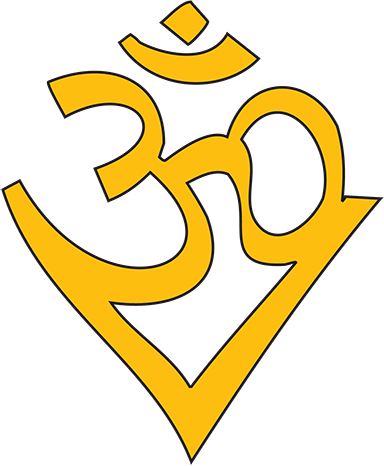(The Republic of North Macedonia was part of the former Yugoslavia up to 1991)
Indian Sanskritist Durga Prasad Shastri made the following observation: “When I was in Moscow staying at a resort, they gave me the key to my room 234, and told me: ‘dwesta tridesyat chetiri’… In disbelief I stood there incredulous to my own ears – Was I in front of a young lady in Moscow, or in Benares or Ujjain some 2500 years ago?” This same number in Sanskrit is pronounced ‘dwishata tridasha chatwari’. How could this self-evident uniformity be possible? How could these two languages have preserved their common ancient pronunciation to such a degree until today?
There is little doubt that the Aryans from India settled in what is Macedonia today.
According to Basil Chulev (From Sanskrit to Macedonskrit) 60% of word roots in Macedonian language are common to Sanskrit. The very structures of the idioms are identical to Sanskrit. The two languages share the same grammatical base. Both are written with syllables and consonant-vowel symbols.
Here is a short list of Sanskrit- Macedonian similar words listed by Basil Chulev:
|
Sanskrit |
Macedonian |
English |
|
Advaya |
Odavya |
Free from Duplicity |
|
Alasya |
Alayaz |
Lazy |
|
Anda |
Mande |
Egg |
|
Antar |
Kantar |
In the middle |
|
Apvada |
Zapovedi |
Orders, Command |
|
Ashva |
As |
Stallion, Horse |
|
Ashtra |
Osthara |
Sharp spear, weapon |
|
Astitva |
Iskustva |
Existence |
|
Balavastha |
Balavasta |
Child, Childish |
|
Baghata |
Baghata |
Rich |
|
Bhag |
Beg(a) |
Escape, Run |
|
Bhadra |
Bodra |
Brave, Good |
|
Bhay |
Boi |
Afraid |
|
Bharman |
Breman |
Burden, Heavy |
|
Bhasana |
Basna |
Speech |
|
Varshana |
Vrne |
Raining |
|
Vastuta |
Vastina |
In reality, the truth |
|
Vedana |
Vedehie |
Vision, Knowledge |
|
Vigya |
Vigya |
Sees, Knows |
|
Vidahva |
Vedova |
Widow |
|
Vyavasaya |
Vyasaa |
Business, Enterprise |
|
Garjanmegha |
Grom-Magla |
Thunder, Cloud |
|
Govinda |
Govedo |
Cow-Herder |
|
Dakshin |
Desna |
Right |
|
znanam(Gnanam) |
Znam |
Knowledge |
|
Znata(Janata) |
Pozanta |
Familiar |
|
Kala |
Kalesha |
Dark |
|
Kalena |
Kalender |
Time |
|
Karava |
Garvan |
Crow |
|
Kendra |
Centre |
Centre/Place |
|
Krsna |
Tsrna |
Black |
|
Kuvasana |
Kurovasna |
Bad Habits |
|
Lata |
Latitsa |
Flower |
|
Madhu |
Med |
Honey |
|
Mandala |
Mandra |
Circle/Enclosure |
|
Mritasana |
Mrtvosana |
Dead posture in Yoga |
|
Mrut |
Mrtov |
Dead |
|
Mukha |
Mucka |
Mouth |
|
Navasthan |
Novstan |
New Place |
|
Navin |
Novina |
News |
|
Padi |
Padni |
To Fall |
|
Palava |
Palava |
Foolish, Reckless |
|
Piyusha |
Piyeshe |
Drink |
|
Pravrti |
Pretvoriti |
Activist |
|
Prastav |
Predstava |
Suggest |
|
Pradhan |
Preanie |
Teach, Transmit |
|
Prakasa |
Prekrasna |
Bright also beautiful |
|
Rada, Radhana |
Radost |
Joy, Beautiful |
|
Roga |
(Baba) Roga |
Sickness |
|
Sabda |
Sveda |
Word or also love song |
|
Sada |
Sade |
Always |
|
Samadhi |
Samaten/Samiten |
Oneness, alone |
|
Sanka |
Senka |
Doubt |
|
Svar/Svasurah |
Svekor |
Father-in-Law |
|
Smit |
Smee |
Smile |
|
Sthan |
Stan |
Dwelling, Place |
|
Stupa |
Stup |
Pillar |
|
Sukha |
Srekhya |
Happiness |
|
Tanaya |
Tanya |
Daughter |
|
Triputi |
Triputi |
Triad, Three-Times |
|
Urna |
Volna |
Wool |
|
Harsha |
Haresa |
Joy, Happiness |
|
Chakra |
Cigra |
Wheel |
|
Casaka |
Caska |
Glass |
|
Chatvari |
Centri |
Four |
|
Sobha |
So-Ubaa |
Beauty |
|
Yuvaan |
Yovan |
Young (also a name) |
Postscript : While researching this subject I found out that a film on Macedonia was made by two brothers in 1895. The brothers were born in Greece but were of Macedonian origin. Their names will fascinate you. The names are Janaki and Milton and the surname is Manaki. How could someone of Macedonian origin born in 1878 have the name Janaki? The surname Manaki is also of Sanskrit origin. Manek is a semi precious brown ruby stone. Lord Swaminarayan (1781-1830) had a famous mare he rode which was also called Manaki because of its brown colour!
This article follows:
The Great Celtic-India Connection
The Great Maya-India Connection
The Great Greek-India Connection,
The Great Russia-India Connection
The Great German-India Connection
The Great Japan-India Connection.
The Great Ancient Egypt-India Connection.
The Great Celtic countries – India Connection.
Nitin Mehta.

Recent Comments